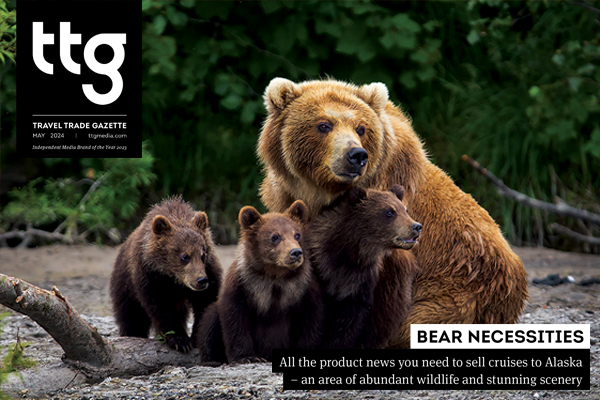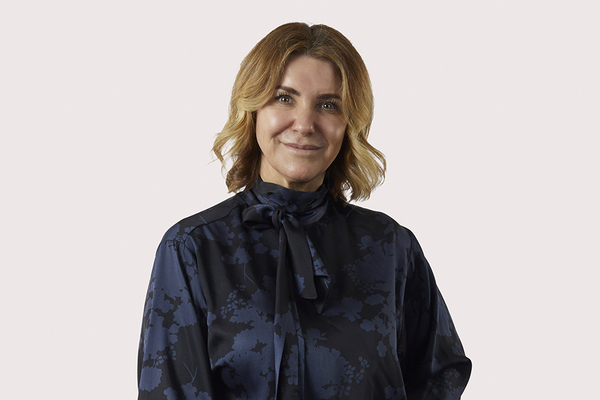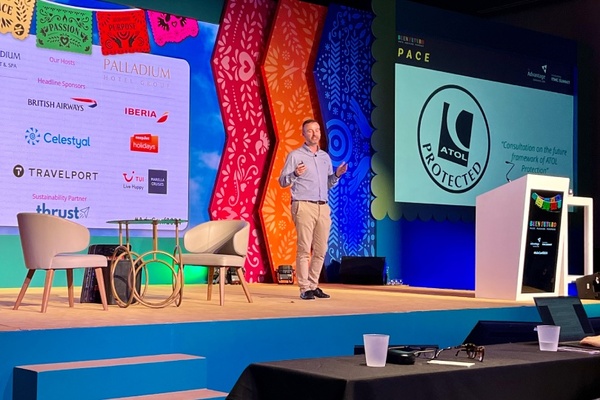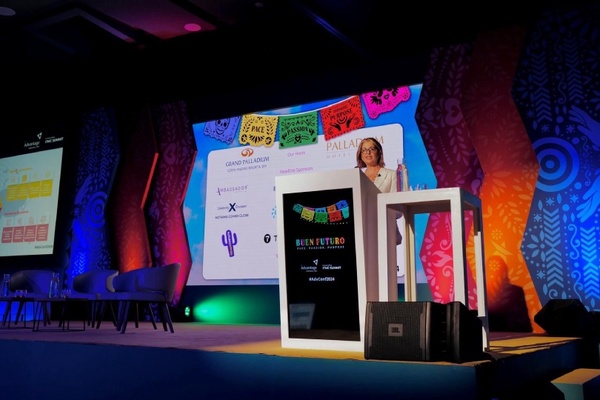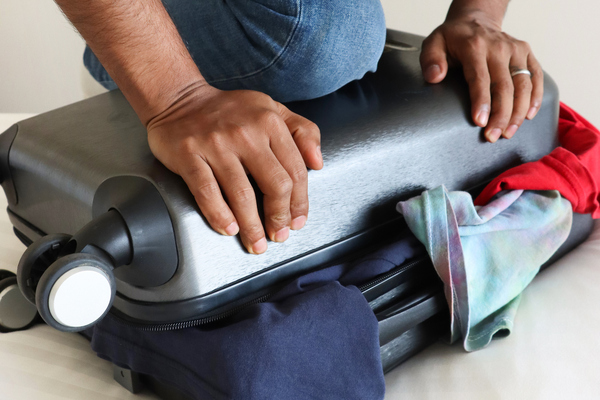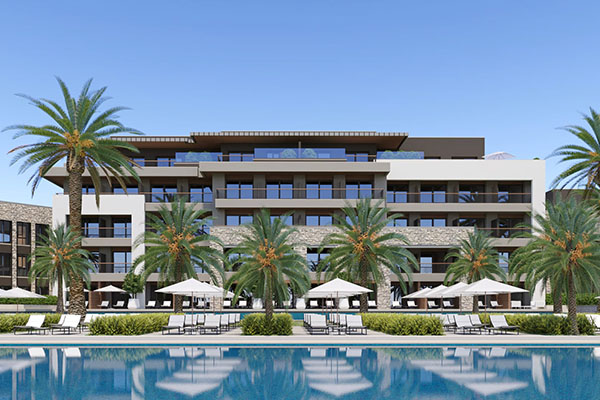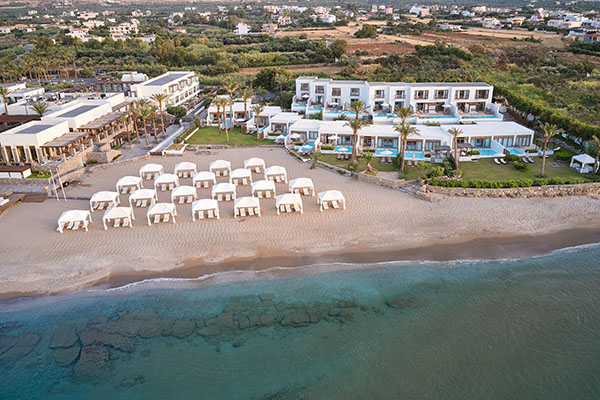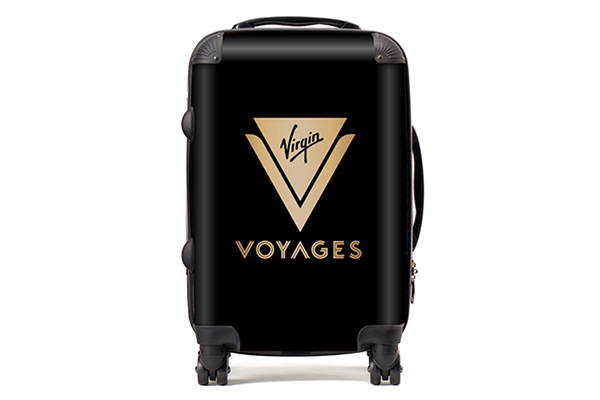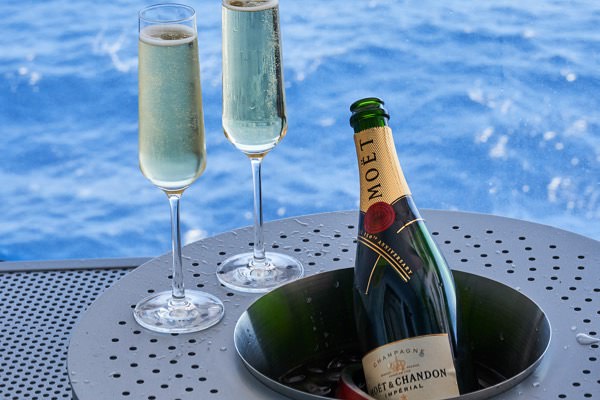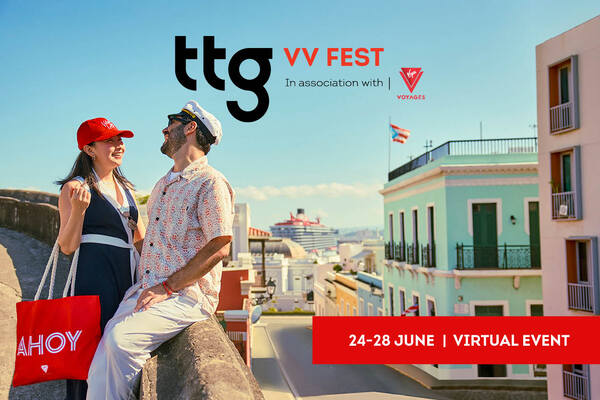Rewarding the best
 TTG Staff
TTG StaffLeaders in responsible tourism were honoured yesterday in 13 categories, with one winner also taking an ‘overall’ crown.
Now in its 12th year, the World Responsible Tourism Awards have become the most significant of their kind.
Organised by Responsible Travel, the vision for the awards – which are open to any organisation anywhere in the world – is to surprise and inspire tourists and the tourism industry by showing what it is possible to achieve with responsible tourism, and to shine a light on the best of the best.
Harold Goodwin, chair of the judges panel, says: “Judging the Awards is an exacting task. The decisions the judges take get tougher every year.
“The volume, quality and diversity of nominations grow each year and each category engenders considerable debate among the judges.
“The quality we have had before us this year has been higher than ever – evidenced by the fact that there are joint gold winners in four of the 12 judged categories.”
Best Responsible Tourism Blog: Uncornered Market
Sponsored by Fair Trade Tourism
Winner’s background
Uncornered Market is a blog that focuses on the personal travel experiences of American husband and wife team Daniel Noll and Audrey Scott. Founded in 2007, they have travelled to more than 90 countries, and with a focus on storytelling and personal experiences their aim is to inform and inspire a respectful movement of travellers around the globe.
What they do
Audrey and Dan’s aim is to create a “chain of stewardship” around the world, with their stories and experiences helping to inform readers about ways in which to travel responsibly and with respect – with 70,000 unique visitors per month to their site and an impressive social media following, that has the potential to be one big chain.
People, not just place, are always at the centre of their blog, with Audrey and Dan giving voice to people who don’t always have one, particularly in far-flung destinations or “uncornered markets”. Part of their aim is also to dispel stereotypes and fears, particularly from their predominantly American following, and thus assure readers that travel is a force for good, and not to be feared. The writing is strong and engaging, without guest blog additions, and Uncornered Market is commercially viable through sponsorship, speaking engagements, training and affiliate sales and advertising. They have inspired other bloggers to grow and extend their travels, while maintaining an ethos of responsible tourism through thought-provoking pieces about people, culture and the living environment.
Judges’ comments
Guided by their motto “driven by curiosity, guided by respect”, this blog is written by full-time travellers and storytellers. Their goal is to create a movement of respectful travellers and they reach more than 1.2 million people monthly through their travel and life adventure blog and social media platforms. They also deal with critical issues around volunteering, fear and awareness.
Best for Beach Tourism (joint winners): LooLa Adventure Resort & Soneva Fushi, Maldives
Supported by Visit Jersey
LooLa Adventure Resort's background
Founded on Indonesian Bintan island, close to Singapore, by Dr Marc van Loo and Isabelle Lacoste (thus the Loo and La) in 2000, this eco-resort specialises in adventure and activity holidays aimed mainly at school groups and families.
What they do
As well as boasting exemplary sustainable building, energy and waste disposal practices, this eco- resort puts the Bintan community at the core of what it does, with all 50 employees hailing from the island.
Although the founders own 95% of the business, 5% of the shares are donated to employees. LooLa’s innovative business model is based on the Dutch polder system, which allows staff to set up their own independent businesses within LooLa – a system that is challenging in a local commercial culture and very much based on the top-down approach. However, there are now thriving food, drink and other businesses at Loola, leading to a substantial rise in staff income and strong customer service. Customer feedback is also extremely positive regarding this cooperative style of business.
Judges’ comments
The judges were impressed with LooLa’s (loola.net) small eco-resort, which provides for schools and family groups. LooLa operates a very successful business (TripAdvisor top 1% and the most popular overseas destination for Singapore-based schools). The staff are all local and have had limited access to education. Staff turnover is zero.
The judges believe the resort’s rainwater collection systems, green air- conditioning and waste water gardens are all highly replicable.
 Soneva Fushi, Maldives background
Soneva Fushi, Maldives backgroundBuilt in 1995 by Soneva founders Eva and Sonu Shivdasani on the island of Kunfunadhoo in the Maldives, it was the first in a series of environmentally friendly, luxury hotels, resorts and spas. The submission for this award is for their original and pioneering resort Soneva Fushi.
What they do
Waste is always an issue on an island and Soneva Fushi recycles more than 80% of waste through the Eco Centro Waste to Wealth programme, while 100% of food waste is composted and used in the vegetable gardens, saving $100,000 annually in waste handling. Soneva Fushi imposes a 2% environmental levy on each room, which goes to carbon reduction programmes managed by Soneva’s own Slow Life Foundation.
The environmental impacts of the Baaru organisation, a collaborative platform between the Baa Atoll resorts that was founded by Soneva, are also far-reaching, such as lobbying to have the atoll protected as a Unesco Biosphere Reserve in 2011 and to ban shark fishing in the Maldives, with a law passed in 2010. Social responsibility is also part of Soneva Fushi’s ethos, with 77% of staff hired locally. Many local people cannot swim, and one of Soneva’s most exciting social initiatives was the Learn to Swim programme.
Judges’ comments
The judges were impressed by the carbon footprint reduction (12% since 2008-9), the 2% environmental levy on room revenue that has raised $5.7 million for work to mitigate greenhouse gas emissions, as well as a ban on plastic water bottles and funding of water projects that have benefitted 600,000 local people.
Best Animal Welfare Initiative (joint winners): Hetta Huskies & Campaign Against Canned Hunting
Supported by Born Free Foundation
Hetta Huskies background
Hetta is a husky sledding company and farm in Finnish Lapland which, as well as being a national market leader, strives to create responsible husky sledding tourism by lobbying and advising on improved animal welfare at parliamentary and regional levels. Hetta Huskies is a division of Cape Lapland (Finland’s Centre for Arctic and Polar Exploration), an extreme sports and adventure training organisation.
What they do
Hetta Huskies works to improve animal welfare standards in the sector. Education among tour operators about veterinary care for the dogs is fundamental to their activities, showing that good care does not have to affect the bottom line. Education within the communities, through schools, farmers’ organisations and others, is also a key part of their work. At government level, Hetta Huskies advocates for targeted welfare standards within the sled-dog industry, a sector that is pivotal in the regional economy.

Canned Hunting (CACH) background
A South African-based charity, formed at the turn of the millennium by conservationists Chris Mercer and Bev Pervan, the campaign now has teams in 10 countries. It is run by volunteers and aims to create public awareness around canned lion hunting by engaging with tourism operators in the private sector and policy-makers in the public sector with a view to ending this practice.
What they do
As well as running public awareness campaigns to end canned hunting, CACH engages with tour operators, airlines and governments to find ways of closing the can permanently. Using research and data rather than emotionally led campaigns, they work to counter the idea that hunting is a form of conservation, and inform stakeholders of the negative impacts of the industry on the environment and local economy, as well as the animal welfare implications.
Following the submission of proposals to bodies such as Abta and Aito, CACH urges tourism operators not to include lion cub petting and walking with lions in their trips.
Such activities, as well as the wildlife volunteering sector, whereby conservationists pay large amounts of money to work with lions on farms unaware that they are subsidising a canned hunting facility, should be banned completely, according to CACH.
Judges’ comments
The Campaign Against Canned Hunting (cannedlion.org) has significantly raised awareness of ways in which lions are commercially exploited. Judges also recognised Hetta Huskies’ (hettahuskies.com) high standards of sled-dog welfare and its aims in continuing to campaign for change within the industry.
Best Cultural Heritage Attraction: Loop Head Peninsula Heritage Trail, Ireland
Sponsored by Wightlink
Winner’s background
The Loop Head Peninsula brand was created by a network of 47 businesses, now the Loop Head Tourism Network, based on the remote Loop Head Peninsula in County Clare, Ireland. Following extensive heritage training, entitled “Learning from the Landscape”, they created the Loop Head Heritage Trail in 2014, one of many cultural initiatives leading to this community tourism initiative that is now nationally and internationally celebrated.
What they do
After Ireland’s community-led Loop Head Tourism network gained a full understanding of their cultural heritage through detailed audit and training, they created the Loop Head Peninsula Heritage Trail – including holy wells, ring forts, standing stones and ancient buildings. This model of partnership between government, local councils and community organisations is now being used in the development of similar trails along Ireland’s most recent coastal trail, the Wild Atlantic Way.
As a remote, unpopulated landscape with wide open expanses of land, Loop Head Tourism has seen the value in protecting and interpreting its cultural heritage – all now visible and accessible to tourists who, until the network’s prolific initiatives, passed by the peninsula and heritage highlights en route to traditional tourism destinations. As well as the Heritage Trail, locally organised festivals such as The Loop Head Walking Festival, Taste the Loop and traditional currach-making courses have not only instilled a local sense of pride, but also led to the creation of one of Ireland’s most successful regional tourism brands.
Judges’ comments
The judges were impressed by the bottom-up approach using a tourism initiative to encourage a community to protect its heritage. The Loophead trail has been mapped and integrated with a database of local stories, and a heritage audit conducted by local residents has added 332 previously unrecorded monuments to the heritage sites on the peninsula.
Best Destination: Gansbaai
Sponsored by Visit Norway
Winner’s background
Gansbaai is a town in the Overberg region, Western Cape, South Africa. Once a fishing village, it is now a hub of adventure tourism. In particular, shark-cage diving, which attracts more than 120,000 visitors a year, but also kayaking, land-based whale watching, horse riding, fynbos safaris, and hiking. Management of this destination is led by the Gansbaai Tourism Association.
What they do
The Gansbaai Tourism Association has been putting this coastal community and biodiverse natural heritage on the map for the past 20 years. With a small fishing village at its core, the association consists of a strong cluster of Gansbaai tourism businesses, many Fair Trade certified, and all committed to protecting the natural environment, preserving heritage, improving the quality of life of local people and strengthening the local economy.
Exemplary businesses committed to local botanical (fynbos) conservation include Grootbos Private Nature Reserve, one of the first members of the prestigious Walker Bay Fynbos Conservancy, and the Dyer Island Conservation Trust founded in 2006 by two association members, Marine Dynamics and Dyer Island Cruises, to fund conservation studies into, for example, the African penguin and great white sharks. The trust has also opened the African Penguin and Seabird Sanctuary for rehabilitation of injured, oiled and diseased seabirds. Gansbaai’s marine preservation ethos also continues out at sea, with whale- watching tour operators strictly obeying responsible whale-watching practices.
Judges’ comments
The judges have recognised Gansbaai for the cooperation shown between various different businesses, both with each other and with the local authorities to make Gansbaai a better place to live. Grootbos has been particularly active in social development, while Marine Dynamics has been involved in the welfare of penguins and seabirds.
Best for Engaging People and Culture: Urban Adventures
Sponsored by Audley Travel
Winner’s background
A division of Intrepid Travel, Urban Adventures offers more than 200,000 experiences in 82 countries and 120 cities, and employs 800 local guides. All the itineraries are created in partnership with independent local firms, with a view to giving tourists an insight into real life in the city.
What they do
The Urban Adventures business model was created to benefit local entrepreneurs and empower them.
By working with local businesses offering trips and experiences in cities and towns around the world, this division of Intrepid Travel offers peer support in terms of marketing to its loyal clientele, as well as guidance on the creation of grassroots- led itineraries – for example, the Food Tours range from a Hoi An Food Trail to a traditional Maldives meal in a local home. The tours have helped families in off-the-trail places like Samarkand, Varna and Tehran to gain income from welcoming travellers into their home.
Urban Adventures is all about cultural exchange and giving tourists access to tours that are created and led by local people for whom human connection and sharing heritage is not only profit-making but also instilling a pride of place.
Judges’ comments
Urban Adventures provided urban experiences for 70,000 travellers and locals in 2014. The judges were pleased that these were sold to travellers and locals, but also with a scalable business model in which local Urban Adventures Partners (UAPs) are able to own and manage their own business.
In return for a commission on tours sold, Urban Adventures gives local UAPs support to promote and sell their tours, which offer an alternative to the standard city tour, including opportunities to visit local neighbourhoods and support local businesses.
Best Hotel for Local Sourcing: Atlas Kasbah Ecolodge
Sponsored by Colorado Tourism Office
An eco-kasbah with 11 rooms in the Argan Biosphere Reserve – a Unesco site to protect the endemic argan tree. Opened in 2009 and using ancient sustainable building techniques, it is the only accommodation of its type in the region, just 20 minutes from Agadir, in the High Atlas mountains.
What they do
The Atlas Kasbah Ecolodge, which opened in 2009, looks like an ancient Berber fortress, but it was built from scratch over two and a half years using traditional techniques and local, natural materials. It was created by local craftsmen using ancestral knowledge of traditional architecture.
Employing staff from the Berber community is a fundamental aspect of the kasbah’s work, and they have led sensitive training in the community to change the mindset of traditional families that women should not work outside the community. All staff are hired within the community, from hiking guides to hammam assistants. Co-owner Hassan Aboutayeb is Berber himself.
The communities now supply produce for the kasbah which, as well as food, local handicrafts and argan oil, are all highlighted at the casbah, with bathroom products also made by Berber women. At present, their data monitoring system shows that 81% of the kasbah’s income is spent within a 30-mile radius. The kasbah is also creating a Slow Food International Convivium in its village of Tighanimine Elba.
Judges’ comments
The judges were impressed by the quality of the information that the ecolodge provides about its economic impact within a 30-mile range – 81% of its expenditure on labour, goods and services is spent locally and the management has plans to increase this by 5% by the end of 2016.
Best Accommodation for Disability Access (joint winners): Endeavour Safaris & Scandic Hotels
Sponsored by Enable Holidays
Endeavour Safaris’ background
A safari company based in northern Botswana, catering for people with access requirements – mobility, visual, hearing or other medical issues. With guests staying in specially designed safari tents, Endeavour Safaris is exemplary in promoting inclusive, highly accessible tourism in a wilderness environment.
What they do
From their base in specially designed mobile tents, tourists travel to various places during the holiday, including remote spots such as the islands of the Okavango Delta, where they can camp under the stars after a day on safari.
Inclusivity is at the core of Endeavour Safari’s work, taking accessible tourism away from niche to norm and showing that tourism accommodation, even in the wildest of environments, can be enjoyed by nearly all tourists.
Working in safari destinations including Botswana, Namibia and South Africa, their safari tent accommodation is designed to maximise the experience not only for people with mobility issues but also for those with visual or hearing impairments. Their vision is also to have people with and without disabilities working alongside each other within the business, particularly with the forthcoming opening of their 100% inclusive lodge.

Scandic Hotels’ background
Scandic Hotels is a market leader in Nordic hospitality with a network of 230 hotels. It has put accessible tourism at the core of what it does, not only to support its brand image of being a hotel chain that welcomes everyone, no matter what their background or needs.
What they do
Scandic created the role of Accessibility Ambassador in 2003 and, since then, accessibility has been embraced on the ground and at board level. Giving detailed information on its website about accessible facilities, Scandic Hotels knows that giving the full picture about accessible tourism is vital in converting enquires to bookings. Scandic has also created an electronic document advising other hotels or tourism firms on best accessible tourism practices. From vibrating alarm clocks that also signal a fire alarm to carpet-free conference rooms and hearing loops, the inclusivity list is long and impressive.
Judges’ comments
The judges recognised two outstanding but very different ways of providing accommodation for people with disabilities. Scandic has worked to integrate accessibility into all parts of a mainstream hotel. Meanwhile, Endeavour Safaris (endeavour-safaris.com) has led the way in showing that it is possible to enable people with a wide variety of disabilities to take part in a safari.
Best Sea or River Cruise: Ullswater Steamers
Winner’s background
A business dating back as far as 1859, the current owners took it over in the early 1950s, leading cruises onboard traditional heritage vessels in the Ullswater Valley. Cruises last from 20 minutes to two hours, and link up with many of the most famous walks in the Lake District National Park.
What they do
Ullswater Steamers takes 280,000 visitors per year up and down the valley. As well as protecting one of the largest heritage passenger vessel fleets in the UK, including the oldest working passenger vessel in the world, Lady of the Lake, originally commissioned in 1877, it protects Ullswater and the surrounding national park environs.
By linking with some of the most popular hiking trails, it provides a viable, sustainable transport link in the park and plays an important role in contributing to stakeholder partnership within the park, such as investing in bridge and pier infrastructure. They monitor their reduction in carbon footprint and recyclable waste, and share their environmental impact in a transparent manner.
Ullswater Steamers also keeps carbon consumption to a minimum, with a minibus to transport staff and a sustainable refit of their Glenridding Pier House. But it is work within the community – sourcing produce locally, being an important local employer and as an influential voice within the local environmental network – in which Ullswater Steamers excels.
Judges’ comments
The judges recognised that Ullswater Steamers has improved its sustainability performance year on year. Since 2011, it has begun to monitor its performance in reducing water and carbon emissions and worked with other local transport providers, and the national park, to encourage people out of cars. They have shown how much progress can be made by adopting a strategy of continuous improvement in sustainability and sticking at it.
Best for Poverty Reduction: Agri Tourism Development Company Pvt Ltd
Sponsored by Tobago House of Assembly
Winner’s backgroundAn agritourism business in the Indian state of Maharashtra, founded by Pandurang Taware, whose heritage is within the local farming community. The organisation’s main focus is training and capacity building among small farming communities with a view to diversification into agritourism.
What they do
As well as running their own farm and agritourism business, which receives 15,000 domestic tourists and international tourists from 17 countries (in a region that is not on the usual tourist trail), inspiring and training other farmers is this organisation’s strength.
India’s agricultural sector is stagnating, with young people migrating to urban areas for employment, and the founder of Agri Tourism Development Company is determined to reverse this trend. Consequently, it now boasts 750 trained farmers and 218 agritourism locations across the state, with farmers experiencing a 33% increase in income.
It now offers products including family summer camps, blanket making using recycled clothes, and other rural handicrafts that are sold at agritourism centres.
Judges’ comments
The judges were impressed by the scale of this agritourism programme, and especially by the number of small farmers being offered a supplementary income to help take them out of poverty. The judges believe this initiative is ripe for replication elsewhere.
Best Innovation for Carbon Reduction: Tui UK & Ireland
Supported by Visit Gozo
Winner’s background
Tui UK & Ireland is part of Tui Group, which operates in 180 destinations worldwide and employs 77,000 people. Its submission for this award was focused on the work it has undertaken to reduce carbon emissions within its retail outlets and offices for all its brands, which include Thomson and First Choice, with more than 600 shops.
What they do
This award has been given for Tui’s commitment to, in particular, cutting carbon emissions throughout its retail and office outlets. Communicating the energy reduction strategy to 5,000 members of staff was one of the main difficulties.
It overcame this by the use of innovative Tui Turtle Dashboards. These operate a simple traffic-light system to indicate an individual shop’s progress against energy reduction targets. These resulted in a 25% reduction in carbon emitted in a single year and, between 2010 and 2014, the firm achieved a 40% reduction in carbon emitted from all offices and retail shops. This reduction was also as a result of innovative technology, such as replacing air conditioning systems with newer, climate-friendly gas alternatives, installing voltage optimisers to deliver power at a reduced voltage from the mains, installing building management systems to monitor and adjust consumption and refitting shops with energy-efficient lighting.
Judges’ comments
The judges regard this as a highly exemplary approach and a model case of taking responsibility to reduce carbon emissions. Often operators are rightly criticised for pushing responsibility for sustainability down their supply chain. Tui UK & Ireland has taken a holistic approach, addressing greenhouse gas emissions across the customer journey, whether in its source markets, airlines or destinations.
Best for Wildlife Conservation: Honko Mangrove Conservation & Education
Sponsored by Florida Keys and Key West Tourist Development Council
Winner’s background
A Belgian registered charity, founded in 2007, working to protect the Ambondrolava mangrove complex, its endemic and migratory bird populations and, most importantly, the communities living in its environs, in southwest Madagascar. Honko works with the communities and visitors to inform and educate about the importance of the mangroves, from its Mangrove Information Centre.
What they do
Honko’s Mangrove Information Centre not only plays a vital role in interpreting the ecological importance of Madagascar’s Ambondrolava mangrove complex for visitors, but also in educating the surrounding mangrove-dependent communities.
Training in community-based mangrove management aims to secure a more sustainable future for this region, as the swamps are vital fishing grounds for local people to earn a livelihood. For example, the creation of a local community association, VOI Mamelo Honko, has led to the restoration of 18 hectares of deforested mangrove – lands that are also habitat for 39 wetland bird species, including some endangered endemics.

In addition, Honko runs training in sustainable fishing practices and education about ways in which communities can diversify their much-needed income sources, such as through ecotourism, beekeeping, tilapia farming and artisanal handicraft weaving. As a result, the success of the centre as an ecotourism and training organisation is now being used as a model in other mangrove wetland regions.
Judges’ comments
The judges recognised that Honko has achieved sustainability and shown what a small-scale initiative can achieve for impoverished local communities. By empowering local people to take charge of their resources, Honko is enabling them to secure their livelihoods, with bee- keeping, tilapia farming, alternative fuel wood, crafts and ecotourism all forming part of an integrated strategy to improve people’s lives.
People’s Choice in Responsible Tourism Award: World Animal Protection
In association with National Geographic Traveller (UK) magazine Sponsored by Catalan Tourist Board
Past winners have proven themselves to be industry leaders, but this category aims to discover which of them the general public finds the most inspiring. Voting took place via National Geographic Traveller (UK) magazine and almost 6,000 votes were received from the public, who were asked to pick a favourite from last year’s winners. World Animal Protection won with 1,536 votes in total.
Winner’s background
A UK-based charity with a global reach, World Animal Protection campaigns for animal welfare and, through its Compassionate Travel campaign, against the use of animals in tourism. Previously known as the World Society for the Protection of Animals, it has campaigned at government, UN and business levels since 1964.
What they do
World Animal Protection’s Compassionate Travel campaign is focused on ending the exploitation of wild animals in tourism, including elephant rides, animal circuses, zoos, bullfights and “swim with dolphin” programmes. With plans to go global, it has focused its work in Australia and The Netherlands, collaborating with, in particular, Intrepid Travel as a leading partner. As a result, 15 Dutch operators, including Tui Netherlands, have stopped elephant rides and visits to elephant shows on all their trips.
World Animal Protection also works to educate consumers, with an international campaign reaching 1.5 million people, 50,000 of whom committed never to taking an elephant ride or watch elephants perform in a show. They also have an informative and free-to-download animal-friendly holiday guide on their website.
Overall winner for 2015: LooLa
Judges’ comments
The judges look for examples which are surprising and inspiring. LooLa is based on the principle that a good business can and should benefit all other stakeholders too: local community, staff, and clients.
The judges singled LooLa out because of its innovative approach, based on the Dutch “polder principle” – that all stakeholders should benefit – and because it has proved that it works. LooLa sells a package in Singapore that includes accommodation, activities and food, but the staff operate their own shop and sell drinks, extra menus, massages and so on. Each department runs its own budgets, and staff keep surpluses as long as guests are satisfied. These initiatives result in a 20-50 % increase in local staff incomes and guests are encouraged to pay a bit extra to participate in community projects.















